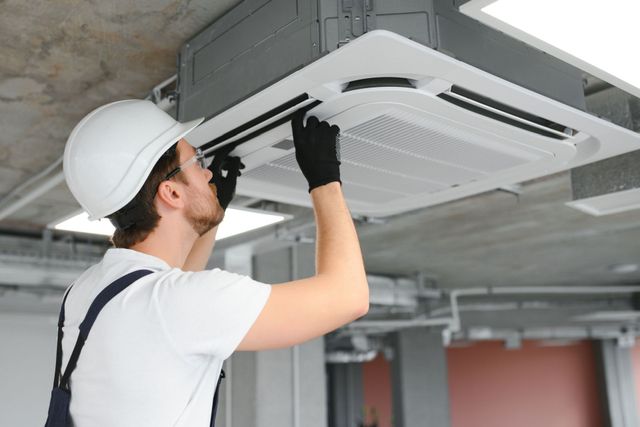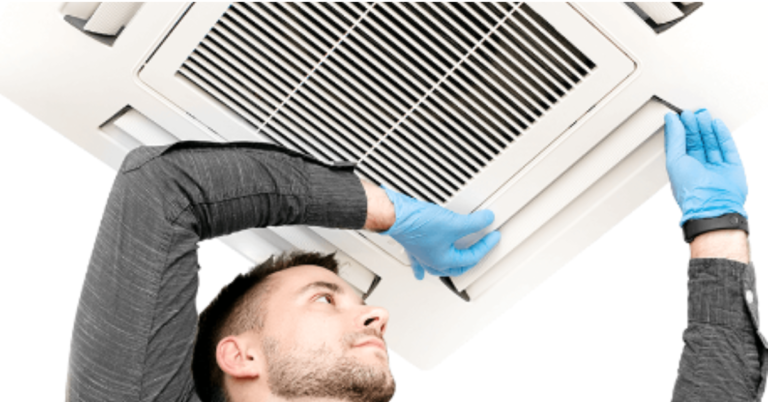As the winter months approach, many homeowners and business owners begin to notice an unwanted guest in their homes and officesa smelly HVAC system. This is a common issue that can disrupt the comfort and air quality of your indoor environment. Understanding the source of these winter smells and how to address them can make a significant difference in your comfort during the colder months.

Understanding the Causes of Smelly HVAC Systems
The first step in addressing a smelly HVAC system is identifying the root cause of the odor. There are several potential sources for these unpleasant smells, each requiring a different approach to resolve.
Mold and Mildew Growth
One of the most common causes of winter odors in HVAC systems is the growth of mold and mildew. These fungi thrive in damp, dark environments, making an HVAC system the perfect breeding ground. Mold and mildew not only produce a musty smell but can also pose health risks if left unchecked.
Clogged Air Filters
Air filters are designed to trap dust, dirt, and other particles, preventing them from circulating throughout your home. However, when these filters become clogged, they can create an unpleasant odor. Regularly replacing or cleaning your air filters can help prevent this issue.
Dirty Ductwork
Over time, dust, debris, and other particles can accumulate in your ductwork, leading to unpleasant smells. Having your ducts professionally cleaned can help eliminate these odors and improve your indoor air quality.
Preventative Measures for a Fresh-Smelling HVAC System
Prevention is key when it comes to maintaining a fresh-smelling HVAC system. By following a few simple steps, you can reduce the likelihood of encountering these unpleasant winter smells.
Regular Maintenance
Scheduling regular maintenance for your HVAC system can help catch potential issues before they become major problems. A professional technician can inspect your system, clean components, and make any necessary repairs to ensure it runs efficiently and odor-free.
Proper Ventilation
Ensuring your home or business is properly ventilated can help prevent the buildup of moisture and odors. Open windows and doors when weather permits, and consider using exhaust fans in areas prone to moisture accumulation, such as bathrooms and kitchens.
Use of Air Purifiers
Air purifiers can help remove odors and improve indoor air quality by filtering out particles and contaminants. Consider investing in an air purifier, particularly if you have allergies or sensitivities to odors.
Addressing Specific Smells in Your HVAC System
Different smells can indicate different issues within your HVAC system. Identifying the specific odor can help you determine the best course of action.
Musty Smells
Musty odors are often indicative of mold or mildew growth. In addition to cleaning your system, consider using a dehumidifier to reduce moisture levels in your home.
Burning Smells
If you notice a burning smell, it could be a sign of an electrical issue or overheating component. Turn off your system immediately and contact a professional technician for assistance.
Rotten Egg Smells
A rotten egg smell is often a sign of a gas leak. If you detect this odor, evacuate the premises and contact your gas company or emergency services immediately.

FAQs About Smelly HVAC Systems
Why does my HVAC system smell during winter?
Winter smells in HVAC systems can be caused by mold, mildew, or clogged filters. Proper maintenance can help prevent this issue.
How often should I clean my air filters?
Air filters should be cleaned or replaced every 1-3 months, depending on usage and the presence of allergens or pets in the home.
Can I use essential oils to freshen my HVAC system?
While essential oils can mask odors temporarily, they do not address the root cause. It is important to identify and resolve the underlying issue for a lasting solution.
For more information on maintaining a fresh-smelling HVAC system, visit Airco Mechanical for expert tips and advice.
For further reading on maintaining your HVAC system and dealing with odors, check out Duct Cleaning Gilbert.
Discover more about addressing odor in house vents to ensure a fresh and healthy indoor environment.
For a deeper understanding of the causes of musty duct smells, explore causes of musty duct smell and learn effective maintenance tips.
This article contains affiliate links. We may earn a commission at no extra cost to you.